Alpkit Pipedream 400 ultralight down 3-season sleeping bag: a warm and comfortable cocoon for backpackers
An impressively packable but super snug sleeping bag for adventures on the wild side for at least nine months of the year

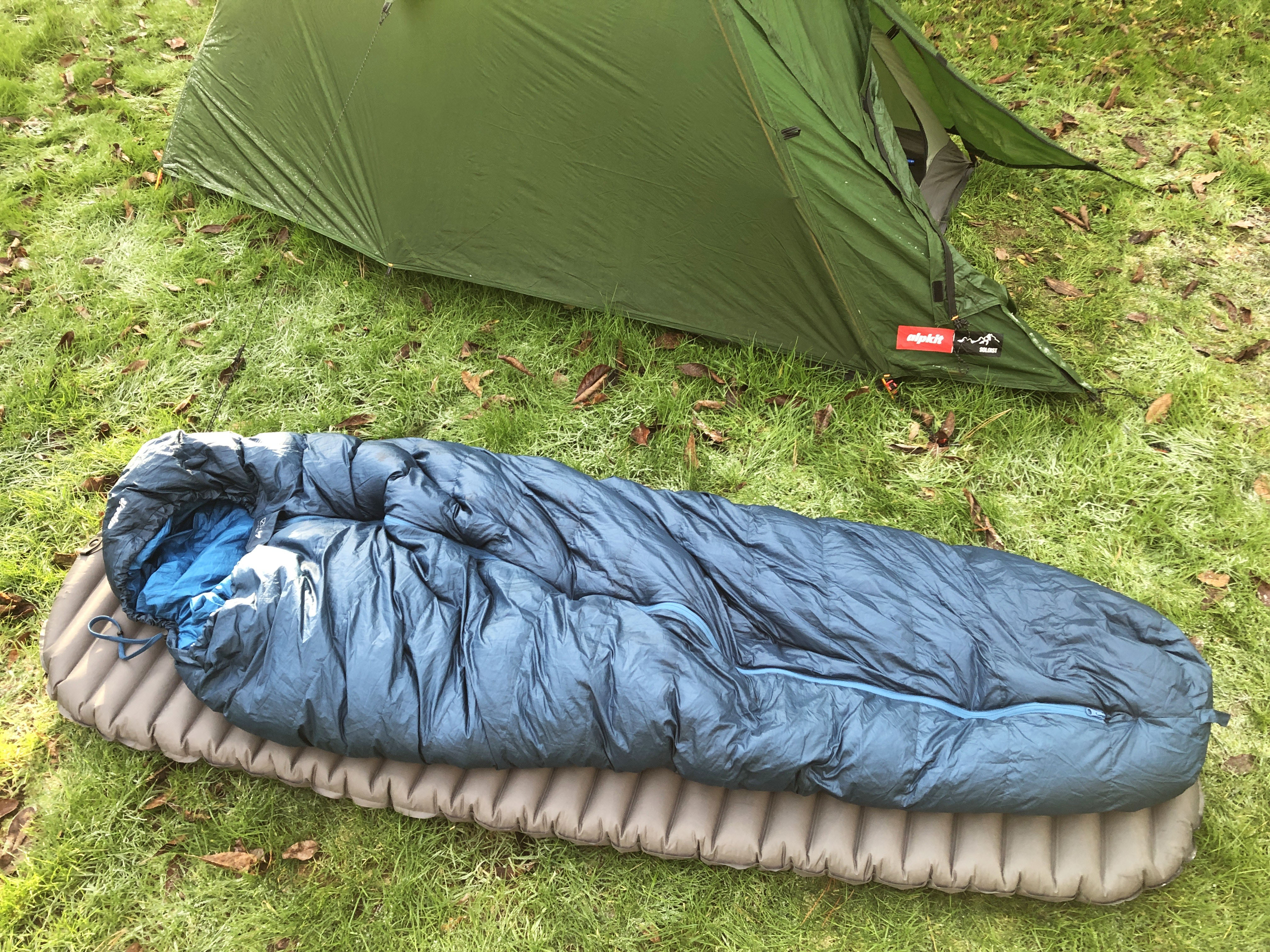
Lightweight 3-season sleeping bags are the little black dresses of the backpacking world. Everyone needs one. And this one is great. The Pipedream 400 is extremely lightweight and compressible for a 3-season sleeping bag that genuinely keeps you warm for nine months of the year (in sub alpine conditions). It’s well designed, has all the features most people are looking for in a sleeping bag intended for backpacking and bikepacking adventures, and the price point is very reasonable.
-
+
Lightweight
-
+
Packs down small
-
+
Excellent weight to warmth ratio
-
+
Great price
-
+
100% RDS certified hydrophobic down
-
+
DWR treated outer
-
+
Choice of left or right zip
-
-
The regular size is a little small
-
-
Down bags require more careful use and storage
-
-
Down content problematic for vegans and vegetarians
-
-
No women’s specific version
Why you can trust T3

Three-season sleeping bags for hikers and bikers need to tread a tricky line, staying lightweight and packable enough for you to be able to fit them in a backpack or pannier, and cart them along tracks and trails, while supplying sufficient warmth and comfort in the cold depth of a spring or autumn night. The Alpkit Pipedream 400 sleeping bag achieves all of the above with style, while staying affordable too.
I have been testing the Alpkit Pipedream 400 sleeping bag in a range of conditions over the last 6 months, from a multiday fastpacking trip along the West Highland Way in Scotland at the very end of autumn, through winter campouts in the garden and some early spring adventures on the wild side in Devon. In all of these scenarios, I felt warm and comfortable in this down bag. And when it comes to packing it away and hitting the trails, the Pipedream 400 can be compressed into a tiny, lightweight bundle, making it easy to carry no matter whether you are travelling by foot or saddle.
After months of testing and many nights sleeping in the Pipedream 400, I think it’s definitely one of the best sleeping bags around for 3-season use, especially in the lightweight sleeping bag category. Read on for my full review of the Alpkit Pipedream 400 sleeping bag.
- RRP: £219.99 (UK)
- Filling: 750 fill power DownTek hydrophobic down
- Fill weight: 400g
- Temperature rating: Comfort: -4.2°C / 24.4°F; Alpkit limit: -6°C / 21.2°F
- Weight: Regular: 865g / 1lb 14.5oz; Long: 910g / 2lb
- Length: 190cm/ 75in; Long: 210cm / 82.5in
- Pack size (fully compressed): Regular: 19 x 14cm / 7.5 x 5.5in; Long: 21 x 15cm / 8 x 6in
- Zip options: Left-hand or right-hand
- Seasons: 3
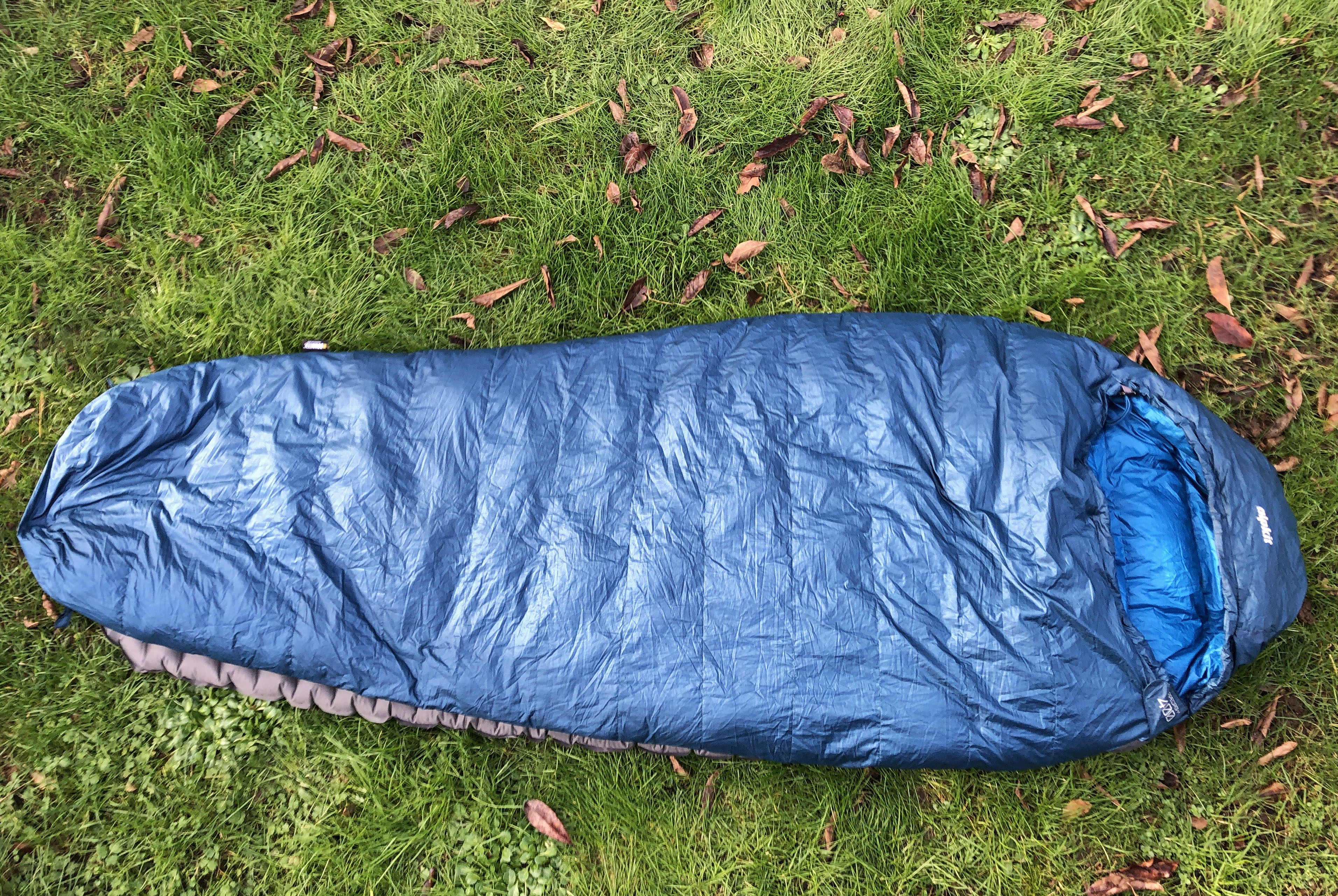
The Alpkit Pipedream 400 with the Alpkit Whisper camping mat and Alpkit Soloist tent
Alpkit Pipedream 400 3-season sleeping bag: design and features
The Alpkit Pipedream 400 has a mummy shape, so it tapers and is narrower at the foot end than it is at the top. This reduces the overall internal size of the bag, which means the air around you is more efficiently heated up by your body and trapped in by the bag, and you will stay warmer during the night (especially in the coldest hours of early dawn).
Horizontal box-wall baffle construction of the bag keeps the down fill in place, so it won’t clump up and cause cold spots.
As well as being available in a regular and large size, you can choose to have the zip on the left or right side, as determined by its position when you are lying on your back with the hood correctly positioned. Alpkit label their bags ‘right-hand’ (which will have the zip on the left) and ‘left-hand’ (which will have the zip on the right) because, typically, right-handed people will find it easier to operate a left located zip, and visa versa for lefties, but a lot depends on how you sleep, so put some thought into this. The zip has a full-length baffle that will help stop the material getting caught in the zip.
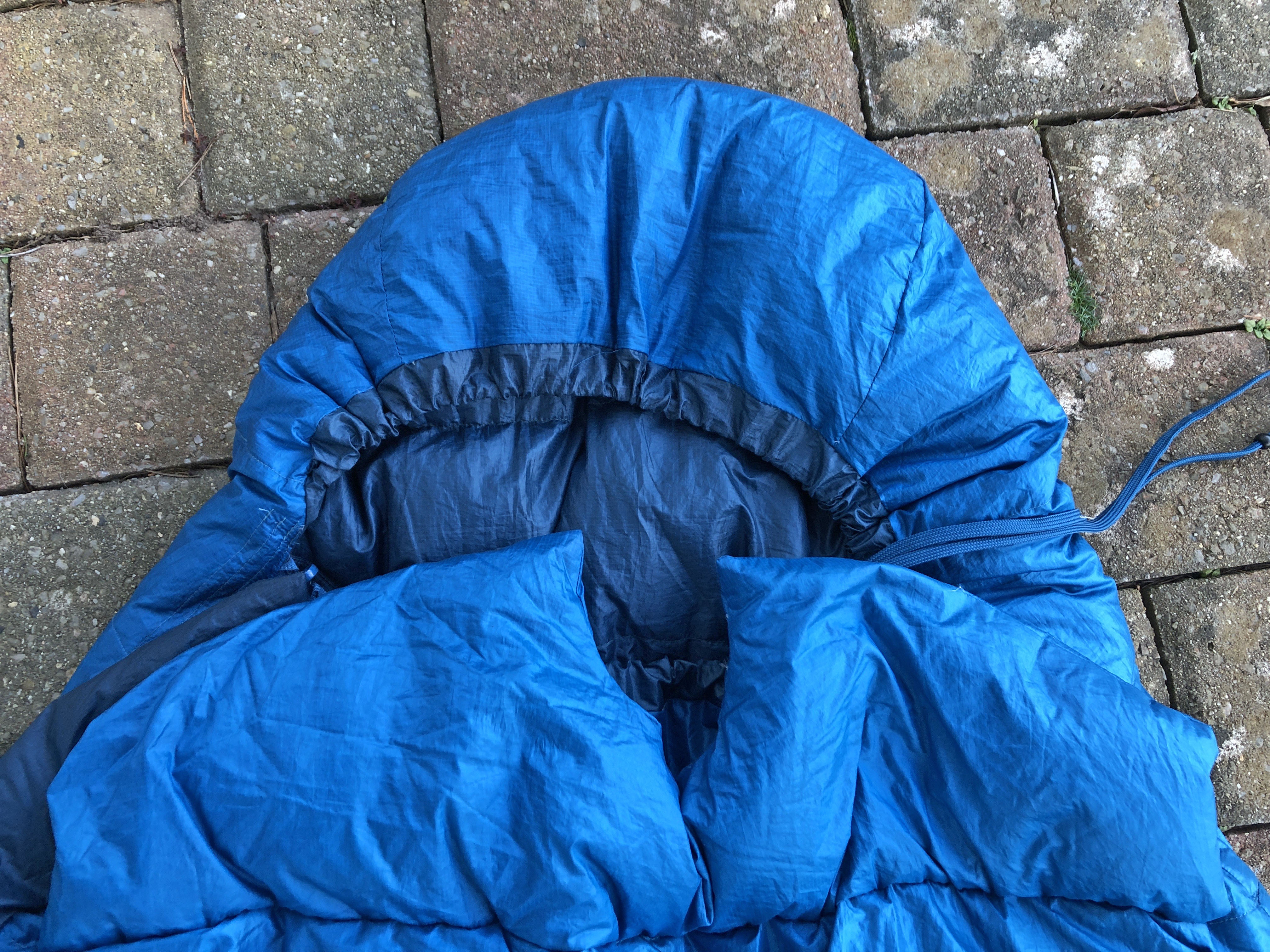
The Alpkit Pipedream 400 with the neck baffle up
The Alpkit Pipedream 400 has an excellent hood, which can be adjusted and pulled in by a drawcord to keep drafts out and make sure you stay cosy, and a sculpted neck baffle that can be worn up under the chin when conditions are cold, or flopped down when it’s warmer. I wasn’t completely convinced about the effectiveness of this neck baffle, but it wasn’t annoying and barely adds anything to the weight.
Get all the latest news, reviews, deals and buying guides on gorgeous tech, home and active products from the T3 experts
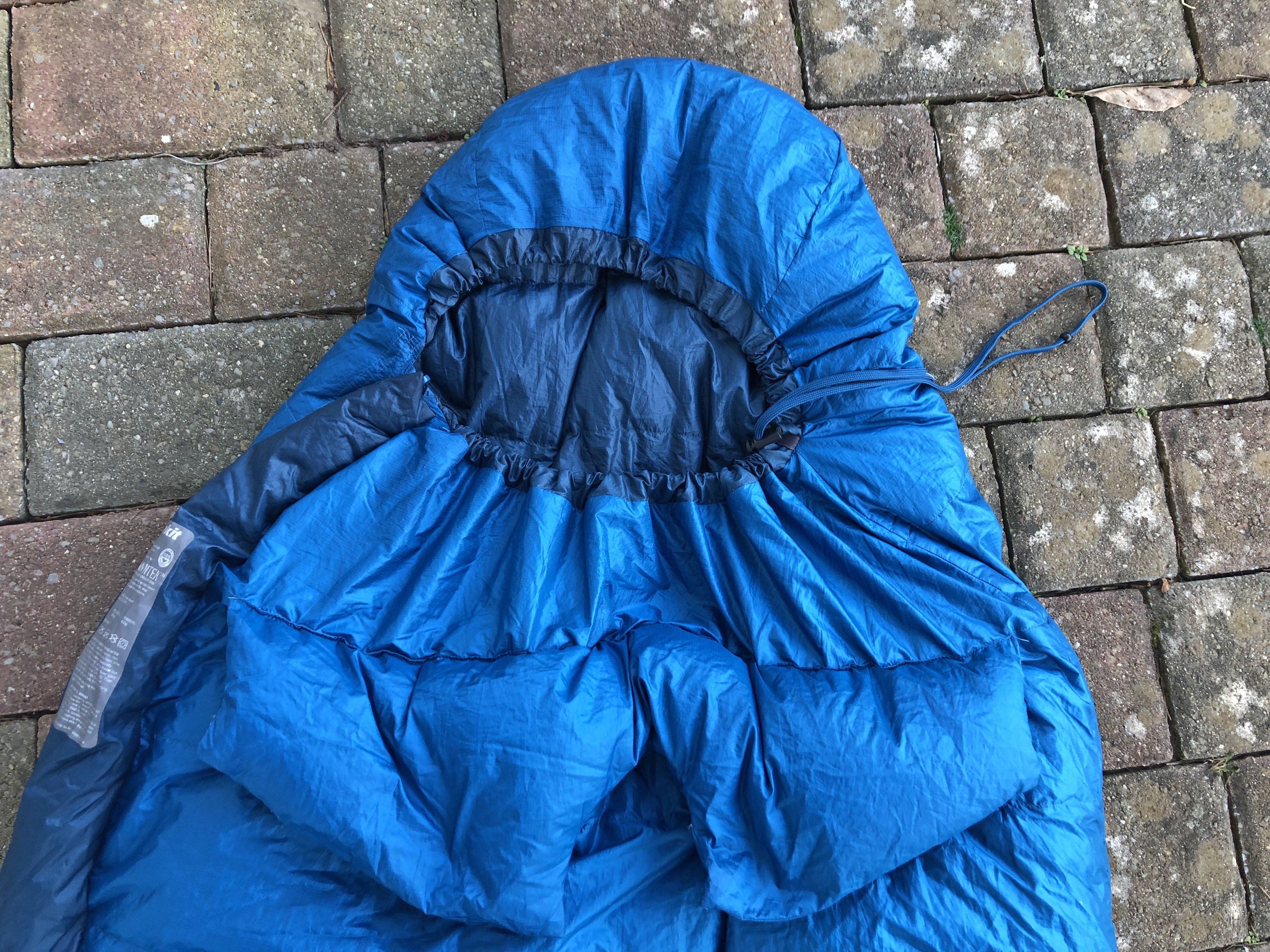
he Alpkit Pipedream 400 with the neck baffle down
Alpkit Pipedream 400 3-season sleeping bag: materials and thermal performance
To keep you warm when the sun goes down and the mercury drops, the Alpkit Pipedream 400 sleeping bag is stuffed with 750 fill power DownTek hydrophobic grey goose down. The
Waterfowl down is the best thermal insulating material on the planet, but its performance is negatively impacted when it gets wet, because it clumps up and looses its best lofting properties, but the hydrophobic treatment applied to DownTek means this bag can still operate in damp conditions.
Do, however, try and protect your sleeping bag from moisture as much as you possibly can, because it will not keep you as comfortable and warm when it’s wet as it will when it’s dry and all the down is lofting nicely.
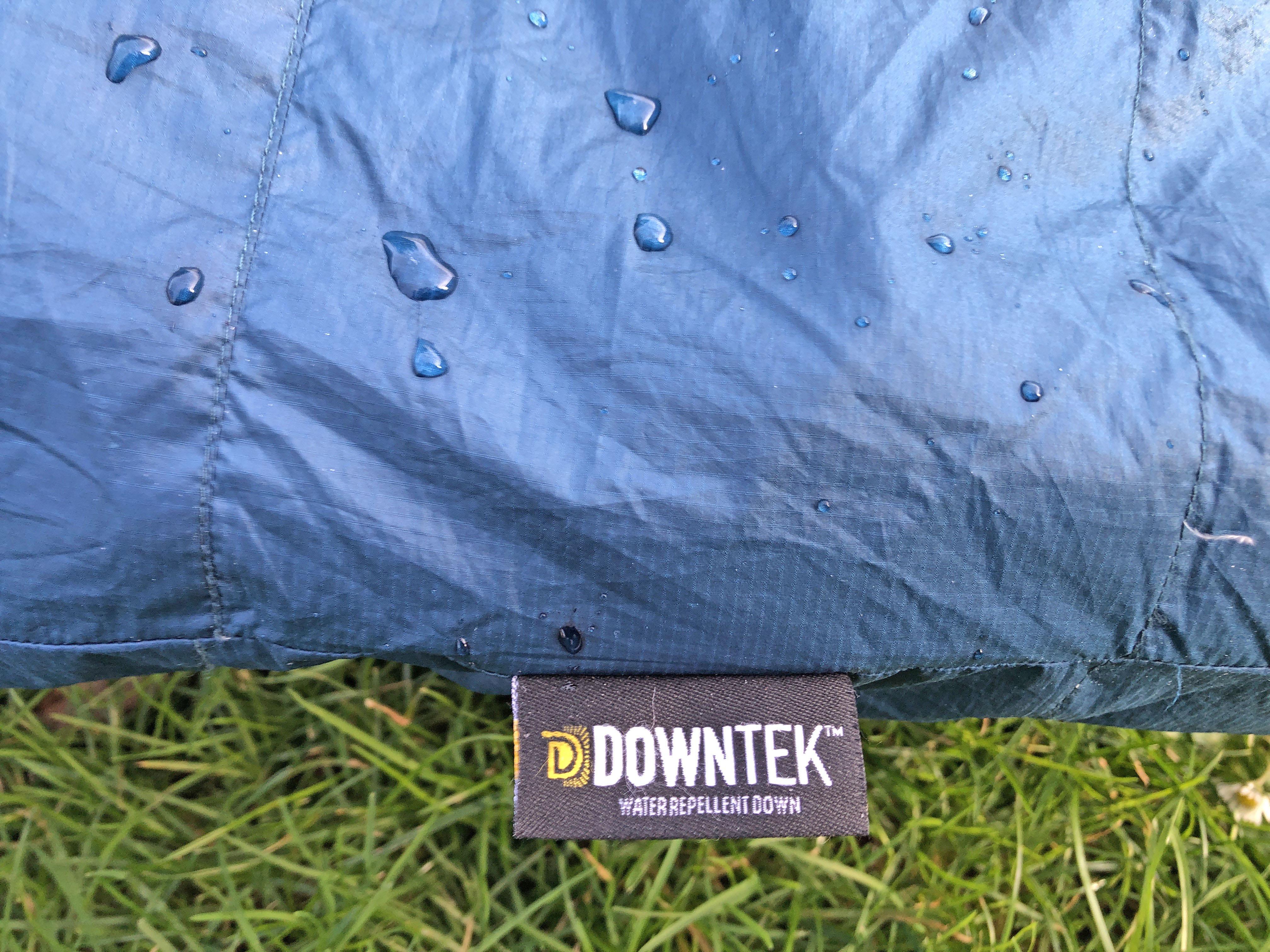
A second line of defence against dampness is supplied by the 20D polyester, PFC-free DWR treated outer material. The DWR here stands for Durable Water Repellent, which means it has been given a coating of a substance that makes them water resistant (note: being water resistant/repellent is not the same as being waterproof – this material will deflect light smatterings of moisture, which will bead on the outer and drip off instead of penetrating the bag, but for the best experience, do your upmost to keep the sleeping bag well away from water).
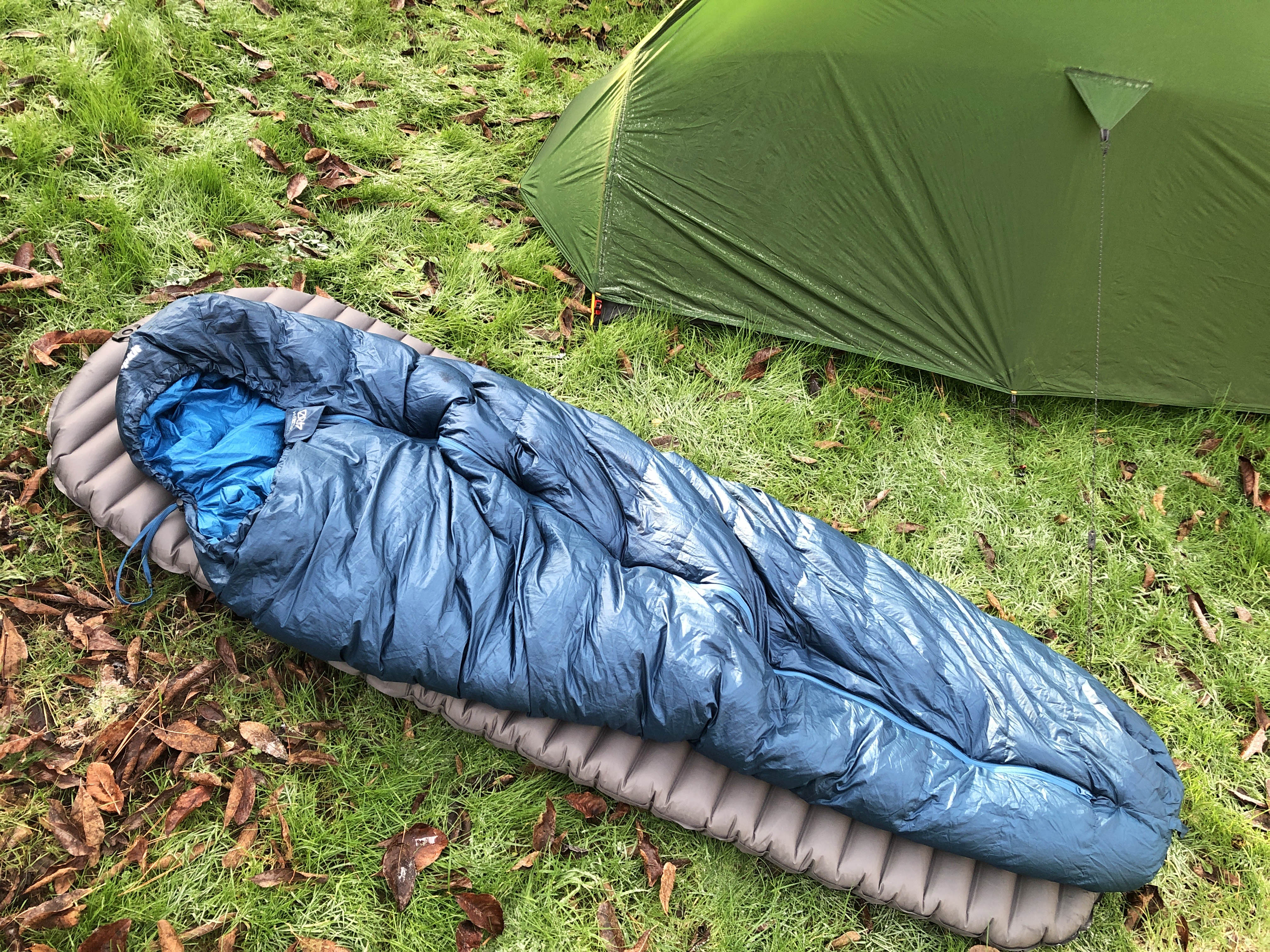
The Alpkit Pipedream 400 with the Alpkit Whisper camping mat and Alpkit Soloist tent
Alpkit Pipedream 400 3-season sleeping bag: comfort levels
I have now slept out in the Alpkit Pipedream 400 sleeping bag for multiple nights in all four seasons, and while it certainly performs best in spring and autumn, this is a bag that will genuinely keep you comfortable for nine months of the year in the UK, so long as it’s paired with the right equipment (in terms of a good backpacking tent and a quality camping mat to suit the season).
With a comfort rating of 4.2°C and Alpkit’s self-set limit rating of -6°C (the EN 13537 European standard rating for the Pipedream 400 is actually -10.8°C) it can also keep you fairly warm in non-severe winter conditions. But remember, the Pipedream 400 only claims to be a lightweight 3-season sleeping bag, so from late autumn through to early spring you will need to pair it with a sleeping mat with a high R-value, and some thermals might also be required.
Aside from some mid-winter campouts in freezing cold, but well-sheltered conditions, the biggest test I gave the Alpkit Pipedream 400 sleeping bag was during a fastpacking escapade along the West Highland Way in very late autumn. Conditions in the hills of Scotland at the northern end of October were wet, wild and cold, but paired with the Alpkit Whisper insulated 3-season camping mat and the Alpkit Soloist 3-season tent, the Pipedream 400 kept me completely comfortable and warm. I slept soundly every night I was out in the wilds – perhaps aided by the high level of activity I was undertaking each day, but I really looked forward to climbing into this cosy cocoon each night, and awoke feeling rejuvenated.
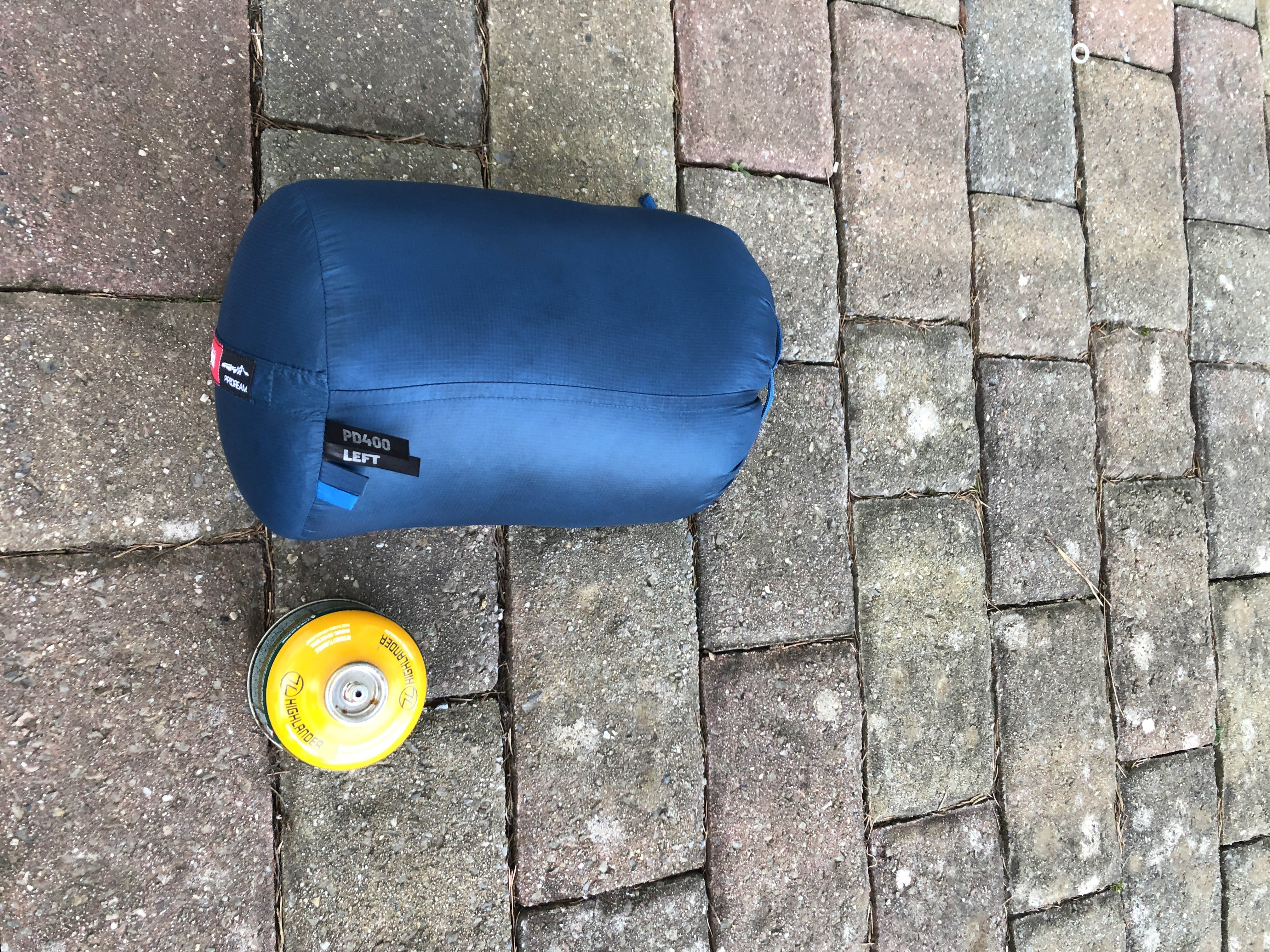
Alpkit Pipedream 400 fully compressed
Alpkit Pipedream 400 3-season sleeping bag: packability
I knew the Pipedream 400 was lightweight (865g), which is why I chose it for this mission, but the fastpacking adventure was also an excellent test of the bag in terms of its packability. To keep weight down I was using a large day pack, and space was at a premium, but despite its impressive 750 fill power the Pipedream 400 squishes down to an amazing compressed size of 19 x 14cm, so I could fit it in my pack along with the tent, mat, camping stove, food, clothes and waterproofs.
The stuff sack actually has a double compression system, with two toggles. This means is has a packed size of 18 x 25cm (Regular) / 21 x 28cm (Long), but when you apply the second level of compression you can get it down to 19 x 14cm (Regular) / 21 x 15cm (Long).
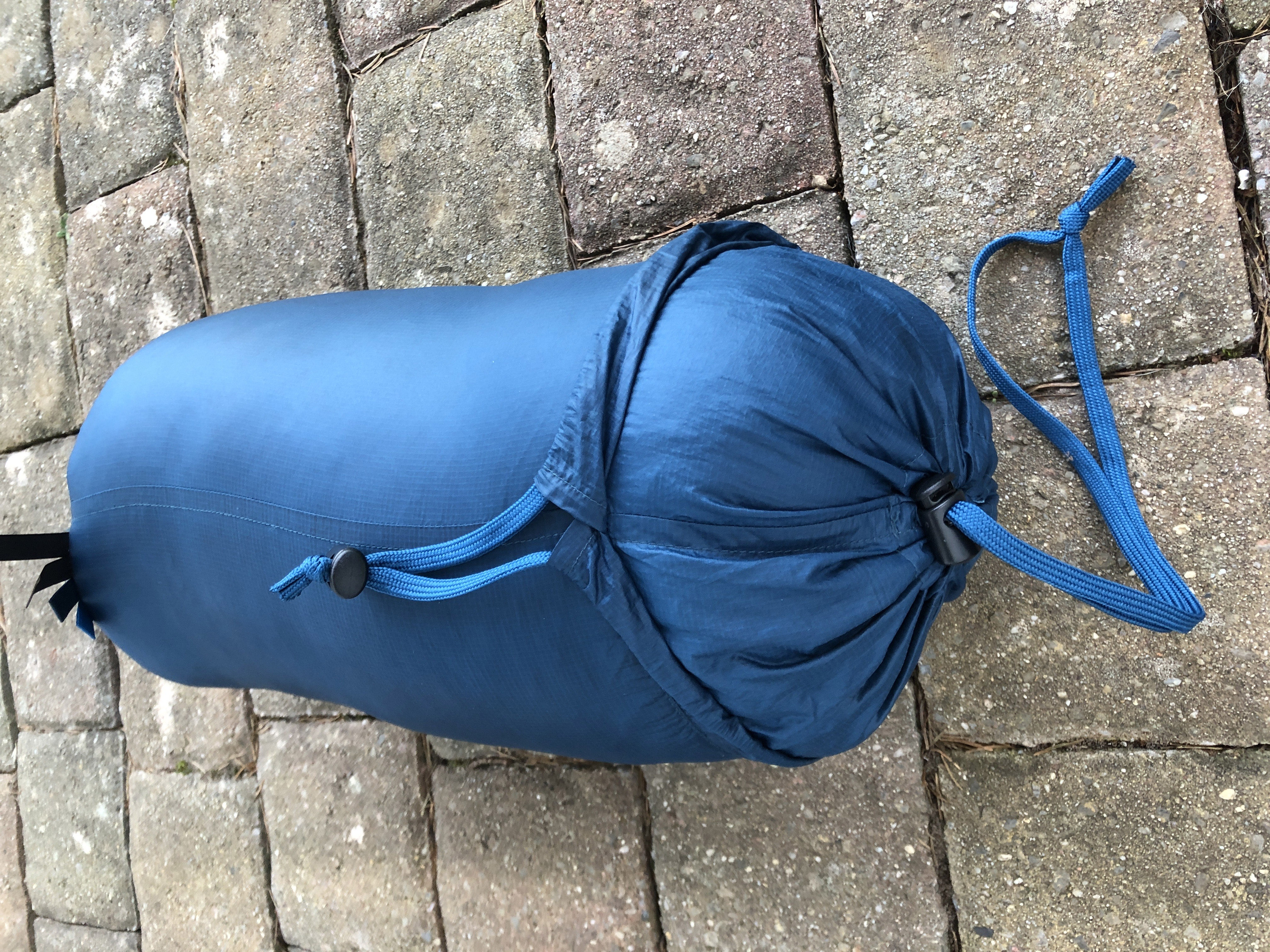
Alpkit Pipedream 400 stuff sack with double compression system
Alpkit Pipedream 400 3-season sleeping bag: sizing
On test, I found the regular length Pipedream 400 to be a bit on the short side, but I am 186cm tall, so I should really have gone for the long version. There is a quite a jump between the two lengths, however, and I wouldn’t want too much dead air at the end of the bag. Also, other users who are shorter than me have reported they felt the regular was a little small – it feels like there is room for a small version and that the regular could be made a little longer. I’d definitely size up if you’re over 6ft / 185cm. It’s worth noting that there is no women’s specific version of this bag, which would be a welcome addition to the range.
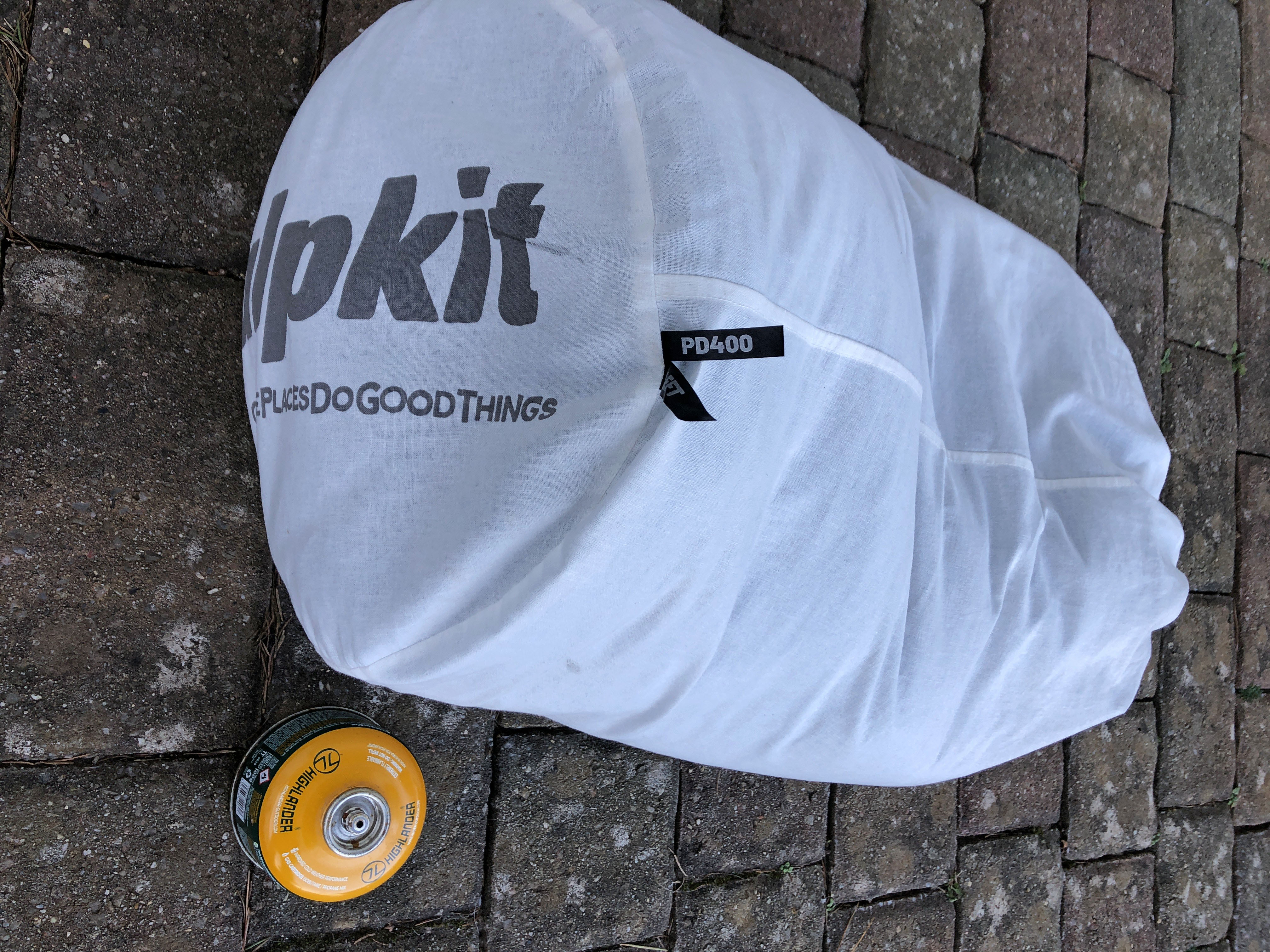
Alpkit Pipedream 400 in its lofting bag
Alpkit Pipedream 400 3-season sleeping bag: inclusions and care
To keep a down sleeping in good working order, it’s important to look after it properly. This means storing it in a dry place, and not keeping it for long periods with the down all crushed up. As well as a stuff sack for use when you’re on the trail and need the bag to be small and easily packable, the Alpkit Pipedream 400 sleeping bag comes with a large cotton ‘lofting’ bag – be sure to pack it away in this when you’re not on the trail, and only compress it to its fullest extent when you really have to.
I have noticed a little bit of down escaping from the bag, which happens with a lot of down sleeping bags. How durable the 20D polyester outer material is, time will tell (I will update this review with any issues encountered), but the Alpkit Pipedream 400 is covered by Alpkit’s 3-year Alpine Bond, and the Peak District–based brand also operate Repair Stations where they will fix not just their own products, but also gear made by others.
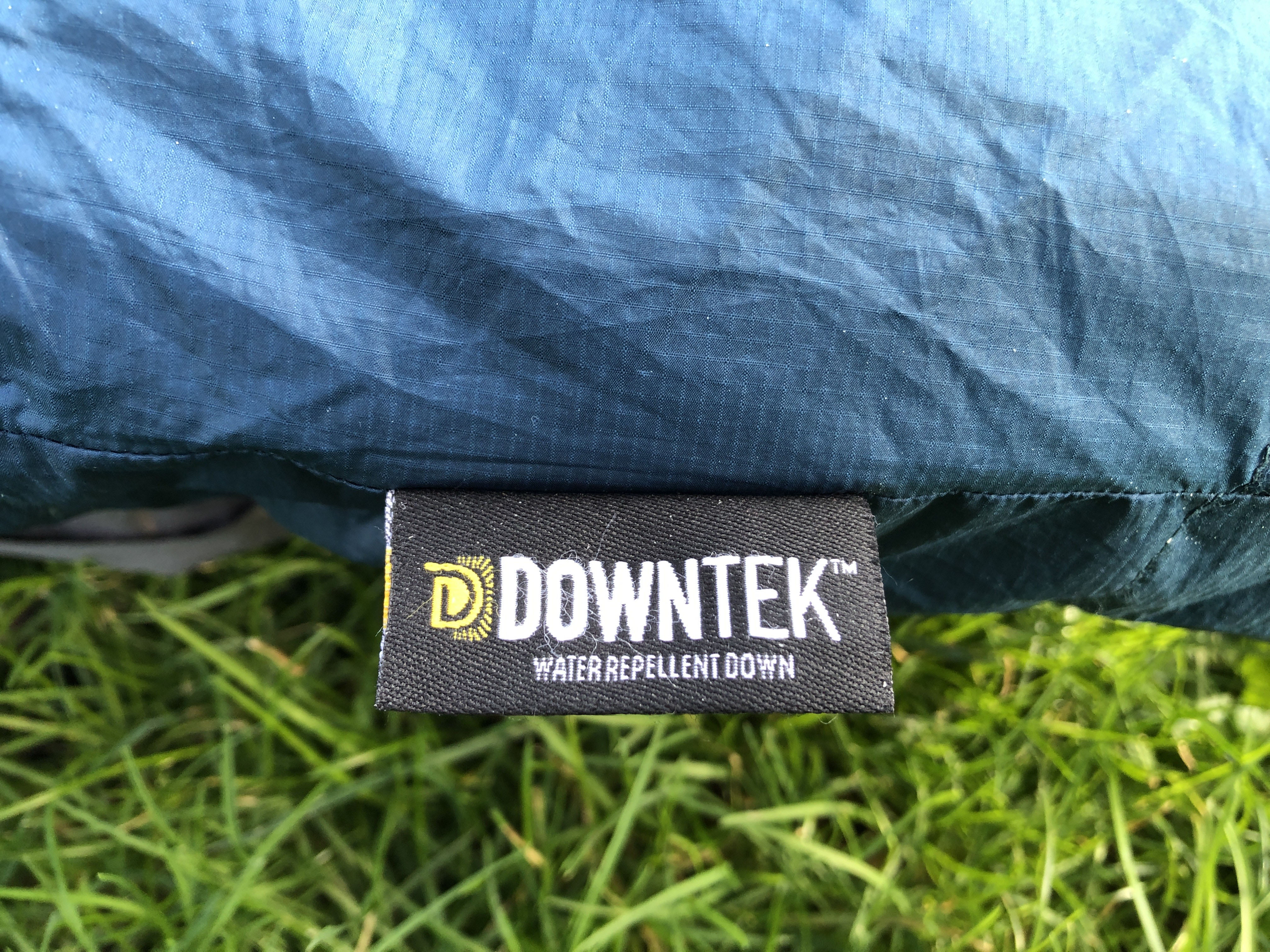
Alpkit Pipedream 400 3-season sleeping bag: ethical considerations
The down used in the Alpkit Pipedream 400 sleeping bag comes from grey geese, and is a by-product of the meat industry, so this sleeping bag is not one for vegans and vegetarians who avoid using as well as eating animal products. It is, however, 100% Responsible Down Standard (RDS) certified and audited by a third party to ensure that it comes from birds who are not live-plucked, force-fed, or otherwise mistreated (as per the Alpkit website).
Alpkit operate a strict code of ethics in their production line, and take measures to ensure their impact on the environmental is as minimal as possible.
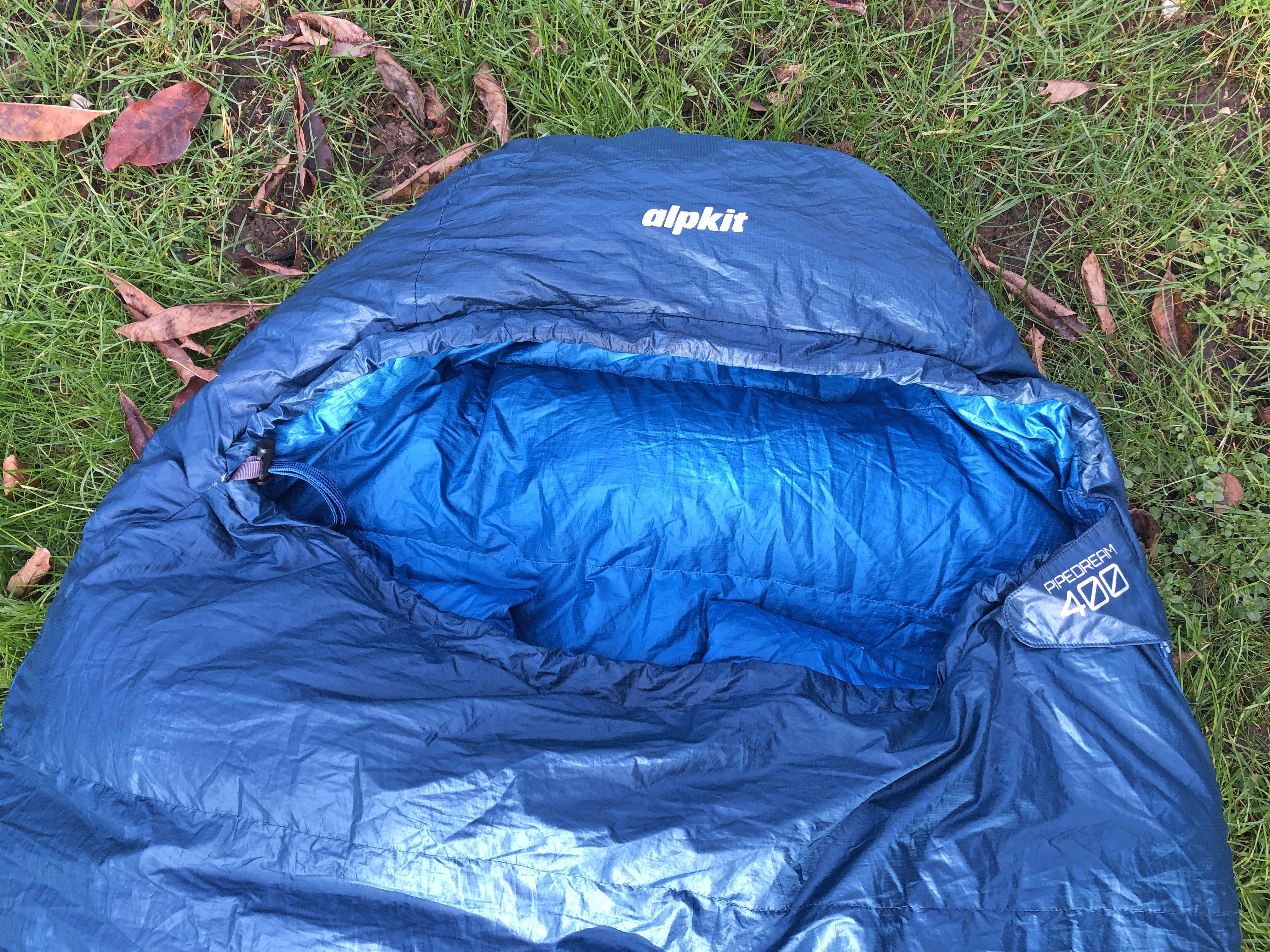
Alpkit Pipedream 400 3-season sleeping bag: Some alternatives to consider
For a even lighter bag, the Alpkit Pipedream 200 tips the scales at just 545g and stuffs away into a very small package, but it is only really suitable for summer camping adventures. If you have a bigger budget and want a little more fill power, the Rab Neutrino 400 boasts 800FP European Goose Down and weighs just 775g. If you don’t like using animal products, or prefer the properties of synthetic fill (which can handle wet conditions better), the very affordable Robens Icefall Pro 300 is worth a look for warmer conditions, and the Sierra Designs Nightcap 20 will keep you comfortable in slightly colder conditions.
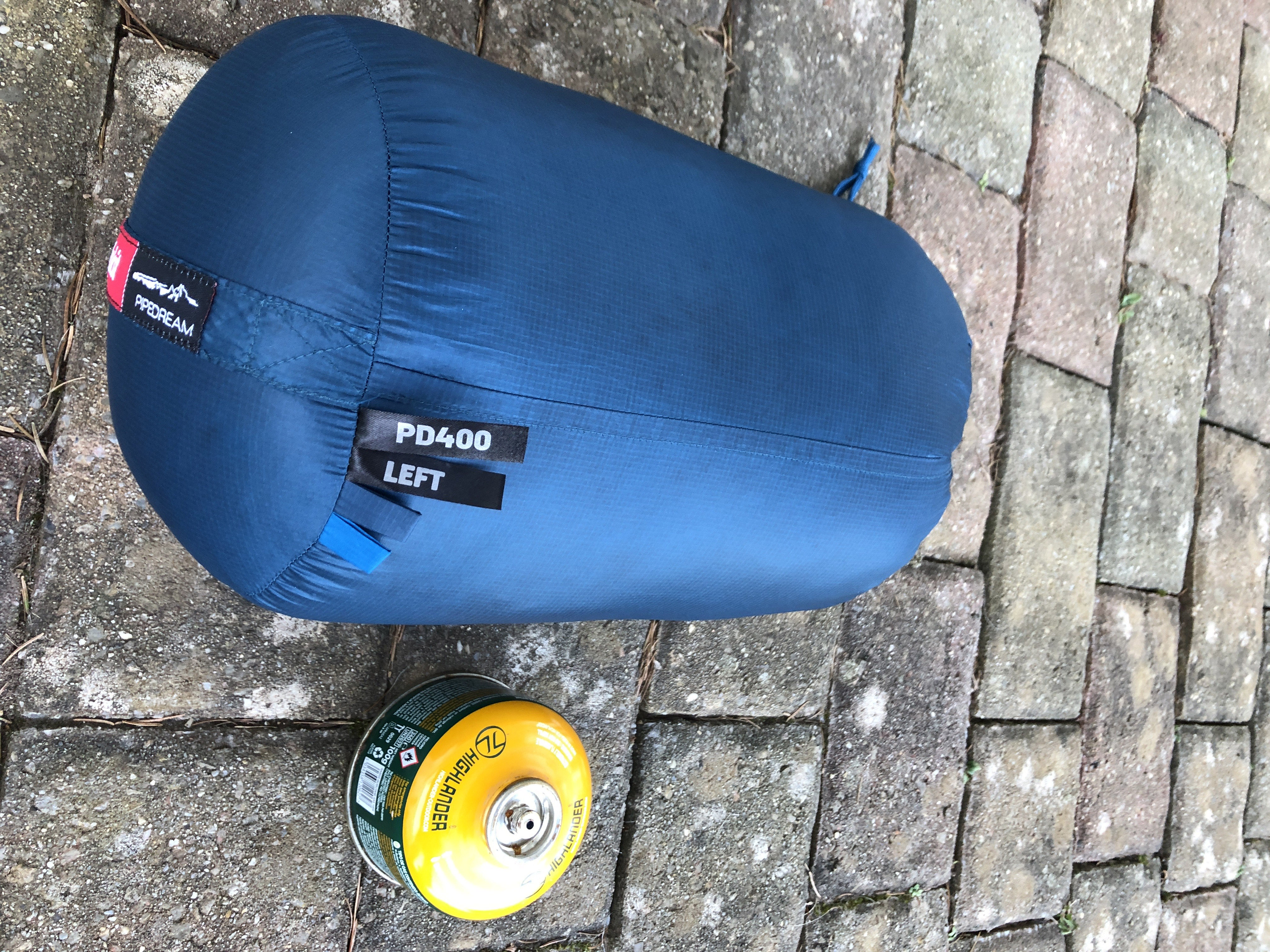
Alpkit Pipedream 400 3-season sleeping bag: overall verdict
A 3-season sleeping bag that truly keeps you warm overnight for nine months of the year, which doesn’t weigh much and packs down into a properly portable parcel, is one of the most important pieces of equipment in any backpacker’s and bikepacker’s gear cupboard, and the Alpkit Pipedream 400 is a really reliable product that ticks all of the above boxes. Not only that, it is priced very reasonably (for a quality down bag), comes with a stuff sack and a loft bag, and Alpkit’s after sale policies are excellent. I genuinely love this bag – I just wish the regular was a tiny bit longer (or that Alpkit would bring in a short version, and a women-specific version).

Author of Caving, Canyoning, Coasteering…, a recently released book about all kinds of outdoor adventures around Britain, Pat Kinsella has been writing about outdoor pursuits and adventure sports for two decades. In pursuit of stories he’s canoed Canada’s Yukon River, climbed Mont Blanc and Kilimanjaro, skied and mountain biked across the Norwegian Alps, run ultras across the roof of Mauritius and through the hills of the Himalayas, and set short-lived speed records for trail-running Australia’s highest peaks and New Zealand’s nine Great Walks. A former editor of several Australian magazines he’s a longtime contributor to publications including Sidetracked, Outdoor, National Geographic Traveller, Trail Running, The Great Outdoors, Outdoor Fitness and Adventure Travel, and a regular writer for Lonely Planet (for whom he compiled, edited and co-wrote the Atlas of Adventure, a guide to outdoor pursuits around the globe). He’s authored guides to exploring the coastline and countryside of Devon and Dorset, and recently wrote a book about pub walks. Follow Pat's adventures on Strava and instagram.